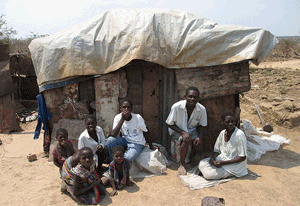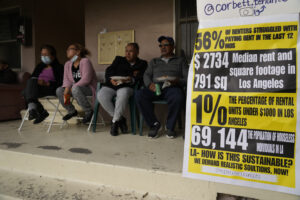U.N. Faces Nearly $5 Billion Shortfall in Aid
The United Nations is facing a $4.8 billion shortfall in funding for humanitarian aid to some of the world's poorest peoples. At the top of that list are the inhabitants of Zimbabwe, Palestine and Kenya, which face increasingly dire financial needs. Although emergency relief donations have risen, the global credit crunch has made it harder for developed countries to keep pace with the need.
The United Nations is facing a $4.8 billion shortfall in funding for humanitarian aid to the world’s poorest peoples. At the top of that list are the inhabitants of Zimbabwe, Palestine and Kenya, which face increasingly dire financial needs. Although emergency relief donations have risen, the global credit crunch has made it harder for developed countries to keep pace with the need.
Your support matters…The Guardian:
The United Nations is warning of a $4.8bn (£2.9bn) shortfall in funding to tackle humanitarian crises in the world’s poorest countries, as the credit crunch leaves developed world governments with little cash to spare.
Delivering its half-yearly update about emergency fund-raising, John Holmes, of the UN’s Office for the Co-ordination of Humanitarian Affairs, said that while the UN’s emergency appeals had received more funds than at the same time last year, the economic crisis was exacerbating poverty and increasing need.
“It is clear that the global recession puts pressure on the aid budgets of all donor governments, but of course it puts immeasurably more pressure on crises-stricken people in poor countries,” he said.
Independent journalism is under threat and overshadowed by heavily funded mainstream media.
You can help level the playing field. Become a member.
Your tax-deductible contribution keeps us digging beneath the headlines to give you thought-provoking, investigative reporting and analysis that unearths what's really happening- without compromise.
Give today to support our courageous, independent journalists.






You need to be a supporter to comment.
There are currently no responses to this article.
Be the first to respond.